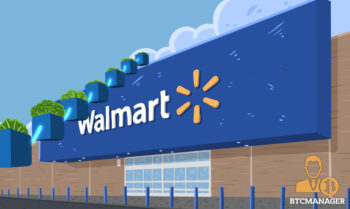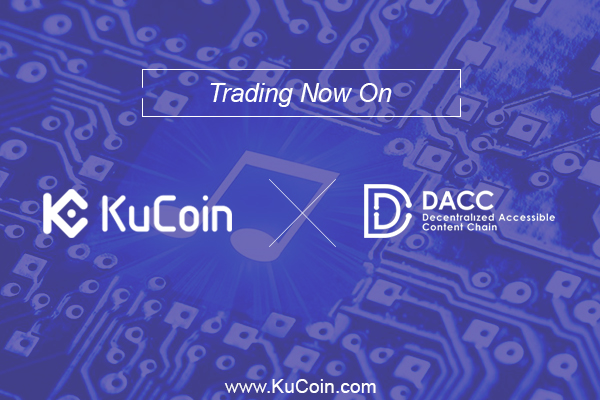2021-9-30 16:17 |
Supply chain management can be a logistical nightmare. What humbly started in the early 1900s as a way to better utilize warehouse space has grown into a complex, $10tn industry that isn’t expected to slow down anytime soon. A single supply chain now may span across numerous countries, moving millions of dollars worth of product, all with different companies taking ownership at each step of the way. And for that reason, supply chains are near-perfect candidates for blockchain disruption.
Because supply chains have grown to the massive sizes they are today, they have no shortage of problems. Let’s take a look at some of the biggest ones they face today and how getting a retail blockchain for such businesses can alleviate some of the pain.
Information InconsistenciesData inconsistency in a supply chain can occur for many reasons. The most common one being the differences in record-keeping systems among associated companies.
Take a simple milk supply chain, for example, that includes a farmer, transportation company, and retail store.
At the start of the chain, the farmer collects the milk and writes down his production information on a piece of paper. Then, he manually enters it into a spreadsheet. From there, he passes the milk along with the spreadsheet to the transporter.
However, the transporter uses a third-party app to track milk inventory. Some systems will automatically transfer the data from the spreadsheet, but often it requires more manual work. And manual work means that there’s room for error.
At delivery, the transporter passes along the milk information to the retail worker. But once again, the store has its own system, an in-house built program. Due to the different systems, there’s a high possibility for human error each time the data changes hands.
The Blockchain is an Immutable Source of Supply Chain TruthIntegrating blockchain into a supply chain gives you a single source of truth. Instead of trying to compare information from different systems, you only need to refer to the blockchain ledger. This congruity reduces the risk for error, human or otherwise, when referencing data points.
Some blockchain projects like VeChain and Waltonchain are even placing physical ID devices on products to improve accountability. At each step of the process, employees scan an RFID tag, for instance, that uniquely identifies the product, further reducing the amount of manual data entry.
Blockchain IDs are also helpful for quality assurance. If someone attempted to switch products, a quick scan would determine the authenticity. This solution is especially beneficial for the luxury items sector – an industry that’s ripe with fraud.
Who’s at Fault?Products may change hands dozens of times in a supply chain. If a product is lost, damaged, or delayed during this time, it’s an intensive task to find the culprit and can lead to a game of pointing fingers.
There are a few reasons why this is the case. The complexity of the system, errors in record-keeping (accidental or not), and confidential data all cause difficulty in figuring out where the fault lies.
Blockchain Solves Supply Chain DisputesThe number one thing that blockchain technology brings to supply chains is transparency. All stakeholders know the status of products and can easily see where an error may have occurred.
Additionally, members can set-up smart contracts such that simple disputes, such as delivery delays, are resolved and paid for automatically. The amount of time saved in dispute resolutions alone lead to significant reductions in cost.
Delayed Issue TrackingAs a supply chain participant, you want to continuously improve your process and quickly resolve any issues that pop up. Unfortunately, the isolation of different parts of a supply chain can make this problematic. Let’s go back to our milk example.
You’re the retail owner. One day, you find that 20% of your milk is spoiled almost instantly. After pulling it from the shelves, you begin tracking the milk’s source. Well, that’s tough.
You received five shipments from three distributors this week who sourced their milk from twenty different farms. Even if you figure out which farm the milk came from, the farmer may not be at fault. The error could have occurred during transportation.
Honing in on Supply Chain Issues with BlockchainAt a basic level, you can use blockchain technology to track where a product is at in its supply chain lifecycle. You simply scan an RFID chip or QR code at each step and the product status appends itself to the blockchain. All members of the supply chain have access to the data and can know with certainty where the delays occur.
Knowing the location isn’t enough to track most quality issues, though. Further tying the blockchain with IoT devices is where quality assurance really gets interesting.
Benefits of using blockchain in supply chains. Source: IBM
Again, we return to our milk issue – this time with blockchain and IoT. All the milk you receive has a QR code that you can scan to see it’s lifecycle, all the way back to the farm from where it came. On top of that, each delivery truck contains temperature sensors that notify the blockchain if the temperature ever rises high enough to spoil the milk.
When you receive your shipment, you scan in the milk. Right away, you see that milk from truck #3 will spoil soon because the truck’s temperature went above the threshold. No need to waste time and resources identifying the problem – a scan is all it takes.
Drawn out PaymentsCurrent payment cycles for logistics companies take anywhere from 60 to 90 days. Like most issues with payments, the drawn-out length is due to unnecessary paperwork and reliance on middlemen to facilitate the transactions. These inefficiencies often cause significant cash flow issues that can ruin companies.
Shipping companies also run the risk of payments being delayed or never even arriving. To hedge this risk, many of them will increase their rates which negatively affects the entire chain.
Smart Contracts Automate PaymentsSupply chain smart contracts can be as simple as paying a vendor at the moment a product is received. Already, this is an improvement on the 60 to 90 day process times mentioned earlier.
Smart contracts bring much more value, though. They can set terms for each relationship in the supply chain and execute those terms without having to pull in an intermediary. An order arrived damaged? Send a refund. The product left the supplier late? Return $X for each minute over the scheduled time. Smart contracts are able to handle much of the complex payments logic that intermediaries currently control.
What’s Next for Blockchain Supply Chains?Integrating blockchain technology into supply chains is just the beginning. Yes, it creates greater efficiency and eliminates the need for trust. But when combined with machine learning and AI, there’s potential for much more.
Using distributed computing power, we can now solve logistics problems that were previously unsolvable. It’s also not infeasible to believe that we’ll have supply chains that eventually run without human intervention. We could see automated warehouses using IoT devices to communicate with self-driving vehicles, all following smart contracts on the blockchain.
These pieces already exist independently, so it’s just a matter of time before they join together. When it comes to blockchain supply chains, the future may be closer than it seems.
The post Blockchain in Supply Chain | How One Chain Helps the Other appeared first on CoinCentral.
origin »Bitcoin price in Telegram @btc_price_every_hour
High Performance Blockchain (HPB) на Currencies.ru
|
|


















